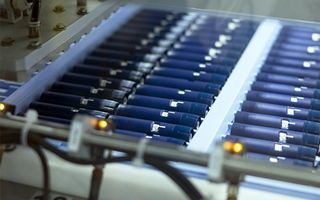(Finance) – The Federal Trade Commission (FTC) of the United States has filed a lawsuit against the three largest pharmacy operators (prescription drug benefit managers, PBMs) – Caremark, ESI and OptumRx – for adopting anti-competitive practices and unfair discounts that artificially inflated the list price of insulin drugs, impeded patient access to products with lower list prices, and passed the cost of high insulin list prices onto vulnerable patients.
The FTC’s administrative complaint alleges that Caremark’s CVS HealthI am of Swan and Optum of United Health Groupand their respective group purchasing organizations (GPOs) abused their economic power by manipulating competition in the pharmaceutical supply chain in their favor, forcing patients to pay more for lifesaving drugs. According to the complaint, these PBMs, known as the Big Three, together They fill approximately 80% of all prescriptions in the United States.
The FTC alleges that the three PBMs have created a perverse drug reimbursement system that gives priority to high reimbursements from drug manufacturers, leading to artificially inflated insulin list prices. The complaint alleges that even as lower list-price insulins that could have been more affordable for vulnerable patients became available, PBMs systematically priced them out in favor of high-list-price, deeply discounted insulin products. These strategies allowed PBMs and GPOs to line their pockets while some patients were forced to pay higher out-of-pocket costs for insulin medications, the FTC complaint alleges.
“Millions of Americans with diabetes need insulin to survive, yet for many of these vulnerable patients, insulin drug costs have skyrocketed over the past decade thanks in part to powerful PBMs and their greed,” said Rahul Rao, deputy director of the FTC’s Bureau of Competition. “Caremark, ESI and Optum, as the gatekeepers of the drugs, have extracted millions of dollars from the backs of patients who need life-saving drugs.”
Insulin drugs were once more accessiblethe FTC explains. In 1999, the average list price of Humalog, a brand-name insulin drug made by Eli Lilly, was just $21. However, the complaint alleges that PBMs’ reimbursement-seeking strategy led to skyrocketing list prices for insulin drugs. By 2017, Humalog’s list price had risen to more than $274, a staggering increase of over 1,200%. While PBM respondents raked in billions in reimbursements and associated fees, the complaint says, by 2019, one in four insulin patients was unable to afford their medications.
